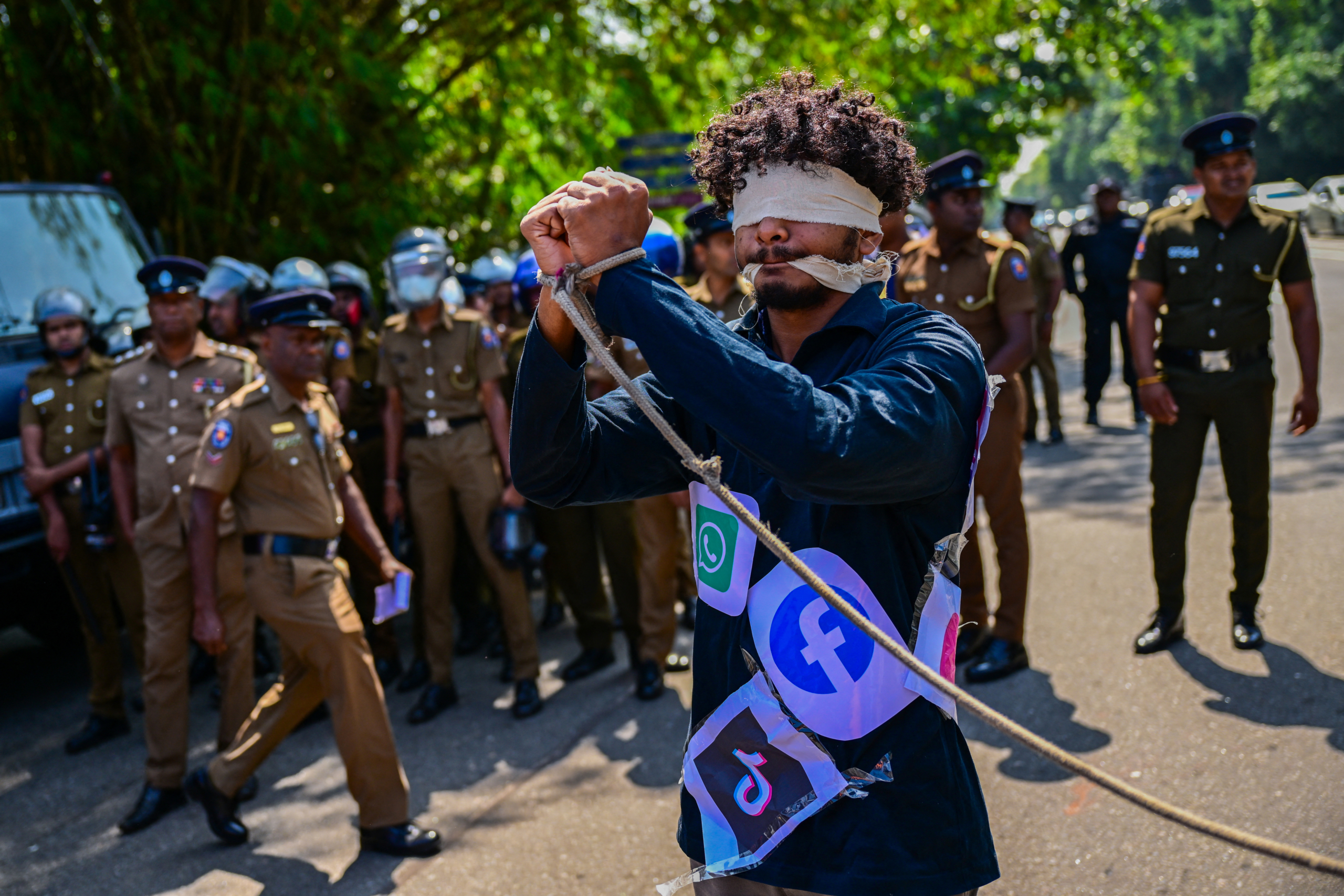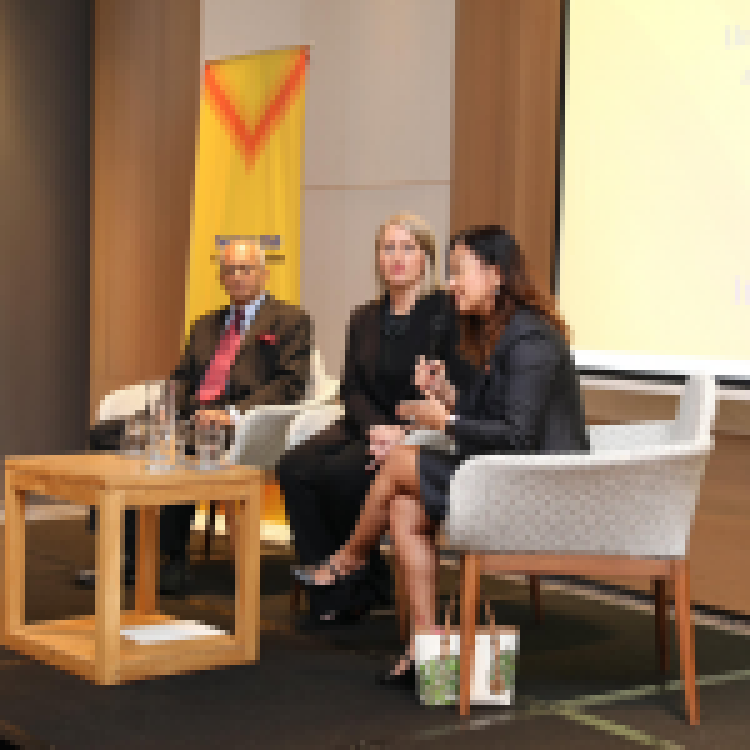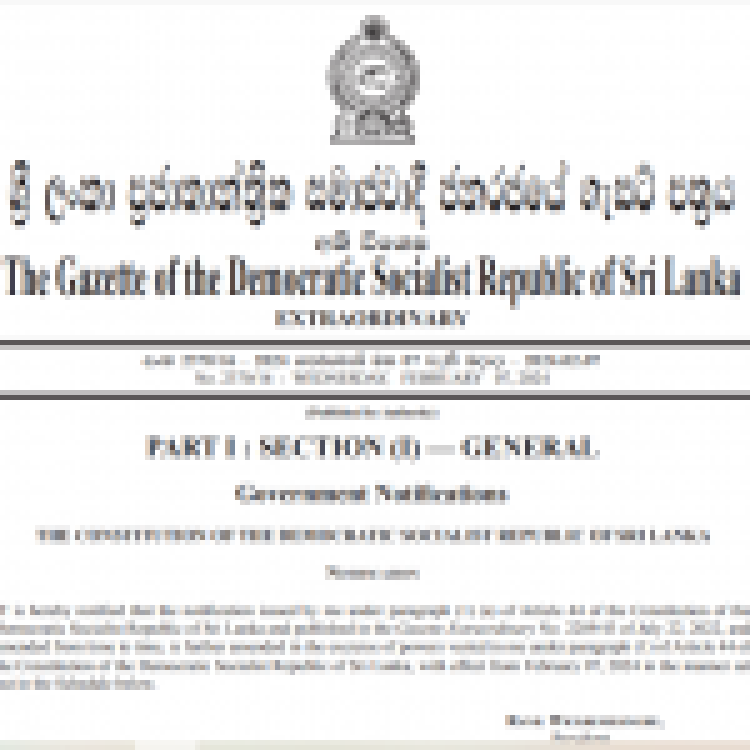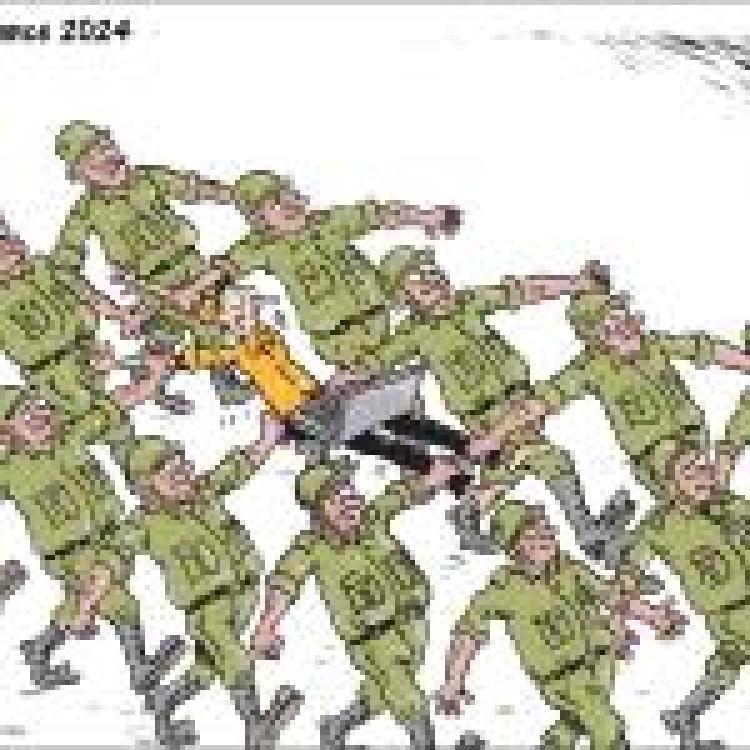
(Image courtesy: Amnesty International)
Sri Lanka's Cabinet of Ministers has granted approval to gazette and table the controversial Online Safety Bill in Parliament, despite international condemnation of the recently passed legislation.
The Cabinet Spokesman and Minister of Transport and Highways Bandula Gunawardena told reporters in Colombo that concerns were raised by experts to make certain amendments to the bill. Now that the Attorney General's Department has received the draft bill prepared by the Legal draftsman, the cabinet has approved a proposal by the Minister of State for Defence to publish the said draft bill in the government gazette notification and subsequently present it to Parliament for approval.
Rights groups have repeatedly warned that the bill will have a far-reaching impact on civil liberties and human rights. In May this year, the Commander of Sri Lanka’s Army Vikum Liyanage filed legal action against an individual under the newly legislated act, after a social media post accused him of war crimes and corruption.
The Office of the United Nations High Commissioner for Human Rights (OHCHR) said that the Online Safety Bill will have "far-reaching negative implications for human rights" and called on the Sri Lankan government to amend the bill to comply with its human rights obligations.
Posting on the social media platform X, the OHCHR said "The new Online Safety Act will have far-reaching negative implications for human rights, including freedom of expression. We urge the Govt. to consider amending the law to address the concerns of civil society and industry groups and ensure it complies with human rights obligations."
Meanwhile, Human Rights Watch has warned that Sri Lanka's controversial Online Safety Bill could impede the freedom of expression on the internet at a time when the island prepares for parliamentary and presidential polls later this year.
“The proposed law, the Online Safety Bill, purportedly provides protections against online harassment, abuse, and fraud. Instead, it is mostly concerned with creating a new “Online Safety Commission,” appointed by the president, that can decide what online speech is “false” or “harmful,” remove content, restrict and prohibit internet access, and prosecute individuals and organizations,” HRW Deputy Asia Director Meenakshi Ganguly said in a statement, adding that the commission-appointed “experts” would be empowered to enter and search suspects’ premises.




